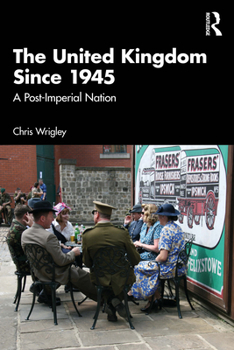The United Kingdom Since 1945: A Post-Imperial Nation
Select Format
Select Condition 
Book Overview
The United Kingdom Since 1945 is an economic and social history providing an appraisal of seventy-five years of British and Northern Irish history.
Format:Paperback
Language:English
ISBN:1138800090
ISBN13:9781138800090
Release Date:December 2025
Publisher:Routledge
Length:214 Pages
Weight:0.72 lbs.
Dimensions:0.5" x 6.1" x 9.2"
Related Subjects
HistoryCustomer Reviews
0 rating





